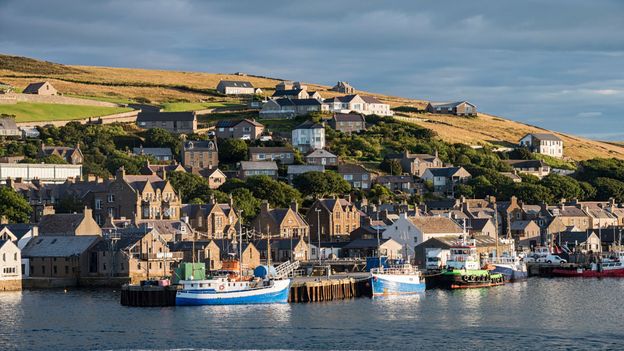When it comes to politics, Heddle sees Orkney’s “socially democratic and community-based” attitude chiming with that of the rest of Scotland (which typically leans left ), but attributes Orkney’s “independent and resilient spirit” to both its Norse heritage and island status.
From the vantage point of London or Edinburgh, these islands, hanging off the far north-eastern corner of the map of Britain, may appear remote. But their strategic location, where the North Sea meets the North Atlantic Ocean, has put them on the world’s stage, from Viking sagas to both World Wars . If there is a sense of remoteness in Orkney, it is from the seats of power in London and Edinburgh. All the better, then, to forge a path towards self-determination, which the islands have been pursuing, with less fanfare, for years. Along with Shetland and the Western Isles, Heddle points out, Orkney led the 2014 Our Islands, Our Future campaign, which led to the appointment of an Islands Minster in the Scottish parliament, and the now-implemented Islands Act and Island Plan which aim to empower island communities by strengthening their voices within Scotland, support sustainable growth and reverse depopulation.
Orcadians’ Norse ancestors were renowned for their courage, action and independent spirit. Much of that resourceful attitude runs through Orkney today: “We’re often overlooked,” said Kemp, “[so] we have to fight for what we get.”
Why We Are What We Are is a BBC Travel series examining the characteristics of a country and investigating whether they are true.
—
Join more than three million BBC Travel fans by liking us on Facebook , or follow us on Twitter and Instagram .
If you liked this story, sign up for the weekly bbc.com features newsletter called “The Essential List”. A handpicked selection of stories from BBC Future, Culture, Worklife and Travel, delivered to your inbox every Friday.

